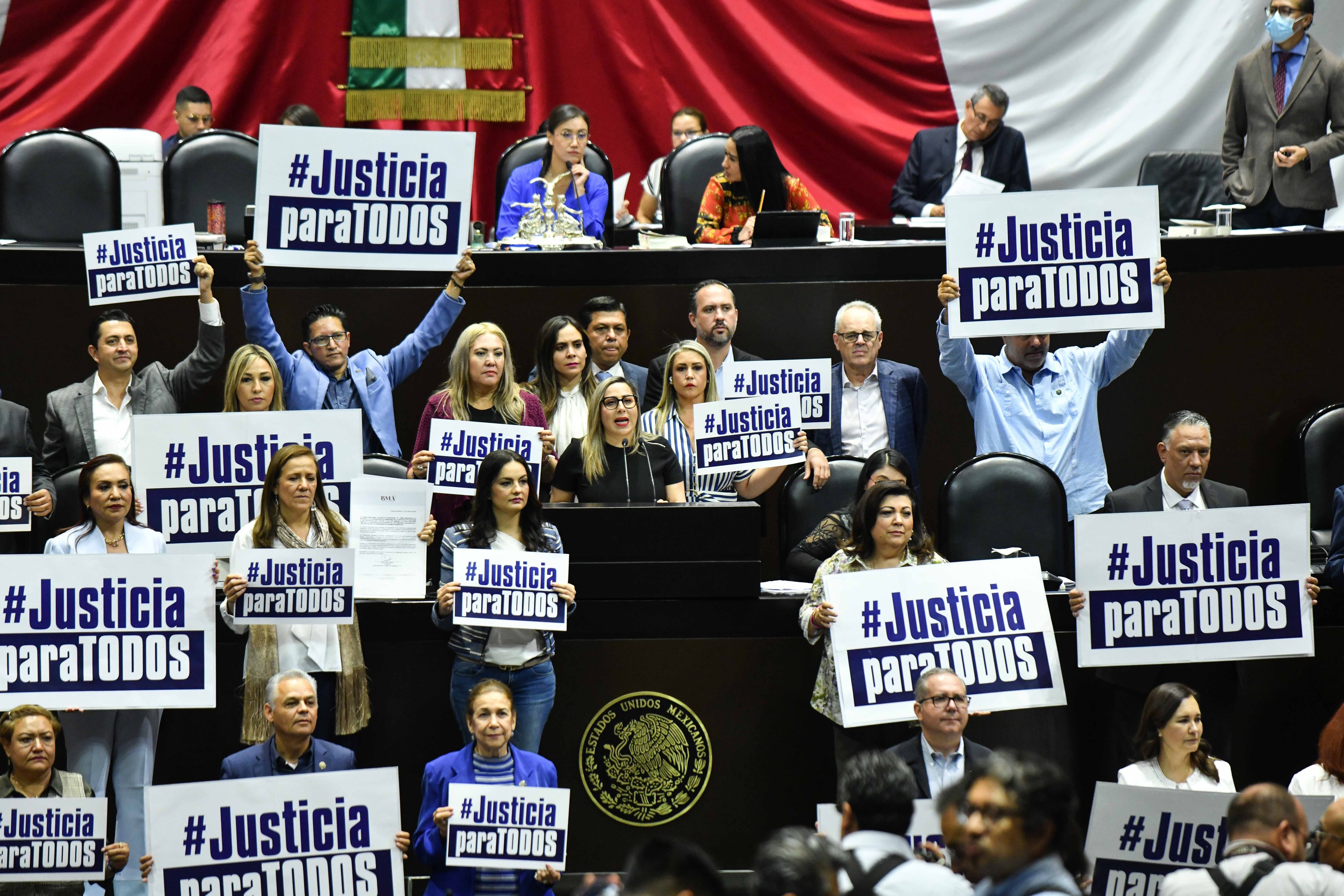
Democracy is not reduced to the day we go to the polls to cast our votes. This is built every day in deliberation on the topics and problems that are common to us. The quality of democracy has to do with the rights of citizens and the effective possibility of exercising them.
At least five decades of social struggles have passed that promoted the expansion of rights and the construction of institutions that guaranteed their full exercise. It is unfortunate to see that in just five years this fledgling institutional framework has deteriorated. On April 23, another step was taken in that direction.
The majority of the Congress of the Union, made up of legislators from Morena, the Labor Party and the Green Party, making clear what their priorities are and who they are really accountable to, approved, in just 20 days, two legal reforms: that of Amparo and the of Amnesty that take us back to the authoritarian regime that deprived this country for 70 years.
Let’s go by parts. Amparo is a resource that we have as citizens to suspend acts of authority that can cause us irreparable harm if applied without first uncovering the substance of the matter that is alleged. But in addition, you can complain against the application of laws that violate the general interest, for example in such fundamental issues as health, education, the environment and political freedoms, association and expression.
The 2013 constitutional reform recognizes human rights as a constitutive part of it and from that perspective it also does so implicitly with protection as a resource against norms and acts of authority that violate social interest, in such a way that if An individual or group of these obtains protection under consideration of the impact on the general interest, the application of the suspension applies to everyone and not only to him or those directly promoting it, until it is resolved whether there is an impact on the rights claimed.
The recent reform to this law limits that right, at least in two ways. First, it eliminates the criterion that a judge could use to protect the applicant for the social interest of his claim and second, it restricts the effect of the protection to only the applicant. The latter means that, although the protection could have general effects, the benefits of the suspension would be restricted only to the person or entity that requested it.
This reform also goes against the very spirit of this resource, since even if there were sufficient reasons to consider an impact on the social interest, the application of a norm could not be suspended until the moment in which the underlying controversy is resolved, potentially causing with this irreparable effects. These are not abstractions, health, environment, education, freedoms of association and other rights can be restricted while ‘the substance’ is resolved, lawyers would say. In revolutionary language: shoot him, then kill him.
In other words, with this reform we are left helpless and all because in the face of constitutional and legal reform initiatives, without due support, the current regime has suffered defeat after defeat, being stopped for the sake of the most basic defense of human rights.
As Laura Rojas and Raúl Mejía point out (Nexus April 19, 2024): “This is a regressive conception not only of the amparo trial, but of the conception of the Constitution as a norm that recognizes and protects human rights and, of course, of the pro-person principle and the prohibition of regressivity in the protection of these rights.”
However, this reform was not enough. The powers of the President of the Republic were also expanded when changes to the Amnesty Law were approved, with which discretionary powers are given to the federal Executive to forgive sentences without making it clear the procedure that would be followed and the causes for granting this ‘forgiveness. ‘. Everything remains unclear: It will be granted to people who provide elements that are useful to know the truth of the facts in cases that are relevant to the Mexican State. Who will determine truth and relevance?
That is, on the one hand, the rights of citizens are restricted and on the other, the discretionary powers of the President are expanded. In other words, at least four decades of expanding the borders towards a more egalitarian society and laws, against five years of initiatives to restrict them.
Without a doubt, we are facing reforms that seek to reverse the brakes that the Judiciary has placed on various regulatory changes that the current regime has imposed with its legislative majority, but that violate human rights, not to mention the erratic and illegal procedure that they have followed to do so. . In other words, “if the norm doesn’t fit me, I adjust it.”
Not to change, surely, these reforms will be controversial before the SCJN, who will have to decide on their constitutionality. In the same way, one will want to argue that this is a confrontation between powers when what is at stake is the defense of human rights and citizens’ resources against authoritarian acts. That’s what we’re talking about.
POSTSCRIPT: I write this before the second presidential debate. I hope that what is being discussed, while you kindly read me, is the substance and the proposals on how to solve the problems that afflict us, and not the organization and format of the debate, nor the anecdote of accusations made by one another.
